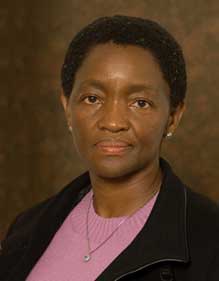|
Getting your Trinity Audio player ready...
|
 Two weeks ago, Net1 Universal Electronic Payment System Technologies disclosed that it was being investigated by the US department of justice for violating the US Foreign Corrupt Practices Act. Net1 is listed on the Nasdaq and the JSE. Its share price plummeted after the disclosure.
Two weeks ago, Net1 Universal Electronic Payment System Technologies disclosed that it was being investigated by the US department of justice for violating the US Foreign Corrupt Practices Act. Net1 is listed on the Nasdaq and the JSE. Its share price plummeted after the disclosure.
The far-reaching Foreign Corrupt Practices Act criminalises corruption perpetrated outside the US by, among others, US-listed entities. The Act prohibits giving anything of value to foreign government officials to obtain or retain an unfair business advantage.
The Act has, of late, been applied by US authorities with aggression.
Why are the US authorities after Net1? And what does it have to do with us? Earlier this year, one of Net1’s subsidiaries, Cash Paymaster Services – a South African company – is alleged to have made payments to government officials in order to secure a R10-billion contract from the South African Social Security Agency (Sassa) to distribute social grants worth R500-billion to more than 15-million beneficiaries in South Africa. The award of the contract was subject to a high court challenge by one of the unsuccessful bidders, Allpay Consolidated Investment Holdings. Allpay took Sassa and Cash Paymaster Services to court this year claiming irregularities in the tender process and corruption on the part of Cash Paymaster.
The court found numerous gross irregularities in the tender process. Yet, despite this, and notwithstanding Allpay’s contention that Cash Paymaster perpetrated acts of corruption, the court upheld the tender. It did so — after finding the tender process "illegal and invalid" — in order not to interrupt the payment of social grants. This decision is going on appeal, to be heard next year.
But the fact that the tender was not set aside by the court did not deter the US authorities. Corruption was alleged involving a company that falls within its jurisdiction — the US authorities sat up and launched an investigation.
South African authorities, on the other hand, appear to be asleep. The corruption allegations are set out in the court papers deposed to by Allpay and have been placed before the authorities by parties in the know, as is required in terms of our own corruption legislation. And yet all is quiet in South Africa.
According to a recent article in Beeld, the spokesman for the Department of Social Development is on record as saying that no investigation against Cash Paymaster is necessary in light of the court’s decision to keep the Sassa tender award in place.
Not only is this a pitiful cop-out, it is plain wrong. The court took a decision not to set the tender aside because it was persuaded that to do so would upset the distribution of social grants and in turn prejudice the millions of beneficiaries.
The court in no way condoned the actions of Sassa or Cash Paymaster in the tender process. To the contrary, the court’s judgment shows up a number of suspect actions and omissions on the part of Cash Paymaster that at the very least provide fuel for an investigation. And the South African authorities will surely want to probe why a major tender was so grossly flawed. Were those responsible for awarding the tender induced to conduct themselves illegally?
Why is the US, which is not affected in any material way by the tender award, taking a stand against corruption and South Africa is not? This is not because our country lacks strong legislation. South African law criminalises corruption; creates a separate offence for corrupt activities relating to public officials; and applies extraterritorially. The difference is that the US has decided to enact legislation and enforce it with vigour. It sends a clear message in order to counter a growing global culture of corruption.
South Africans have an interest in our country following this example. The most vulnerable South Africans who are beneficiaries of social grants are most at risk if this is left in the hands of a distributor that has been implicated in an illegal tender. The economy is at risk if bidders for major public tenders are required to compete on an uneven playing field.
All South Africans are exposed if anticorruption laws remain unenforced.
So what should be done? The court acted in an attempt to protect the interests of 15-million grant beneficiaries. The choice, however, should not be between protecting the vulnerable or accepting corrupt practices. By confronting corruption, we protect the most vulnerable, who ultimately pay the cost of corruption. Strong law is not good enough. We need strong enforcement too.
This article was first published in the Business Day








